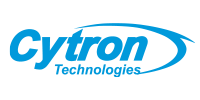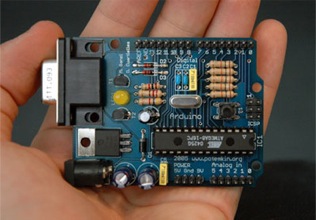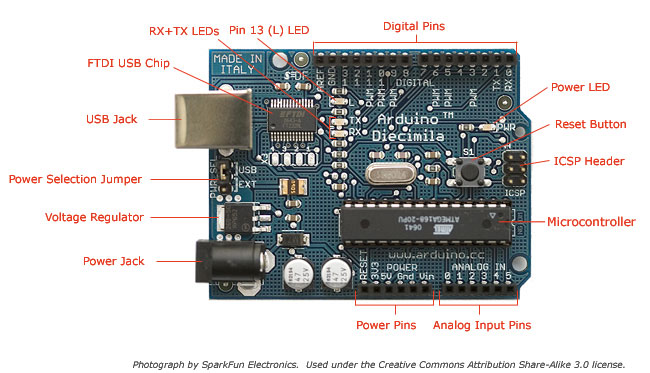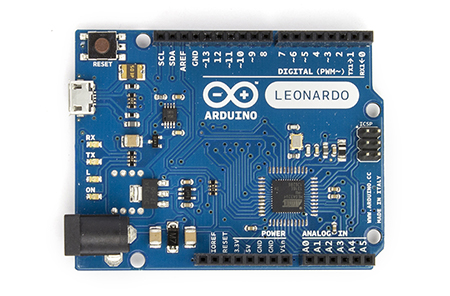Your shopping cart is empty!
Many have requested us to distribute Arduino, and we did it! Now you can get the main board from here, the category on the Cytron site is under Arduino Categories.
Arduino started in Italy, fully open source (hardware and software), and gain its popularity around the world within just a few years. Very powerful controller, and come with its own IDE and programming language (C alike). Uses a bootloader to load programs, and thousands of projects for references, here I got a few to share:
The features:
- Microcontroller: ATmega328
- Operating Voltage: 5V
- Input Voltage (recommended): 7-12V
- Input Voltage (limits): 6-20V
- Digital I/O Pins: 14 (of which 6 provide PWM output)
- Analog Input Pins: 6
- DC Current per I/O Pin: 40 mA
- DC Current for 3.3V Pin: 50 mA
- Flash Memory: 32 KB (ATmega328) of which 2 KB is used by the bootloader
- SRAM: 2 KB (ATmega328)
- EEPROM: 1 KB (ATmega328)
- Clock Speed: 16 MHz
Arduino Leonardo
So if you are really interested to get one, get it from here, anyway the stock will only be available by mid of August 2010. For your information, there are many version of the Arduino main board, some is improved version and some are modified from the original version. Anyway, it has grown a lot and currently, there are more than 20 types of Arduino boards in the market. Up to date (Nov 2012), we are currently carrying:
- Compact size:
- Arduino PRO Mini – Compact form of Arduino main board, smaller than Arduino Fio. Uses ATmega328 as a microcontroller, lower cost as the USB bridge is being taken off, loading program will require FDTI breakout board or UC00A R2. Not compatible with most shields mechanically (size).
- Arduino Fio – A smaller form of Arduino main board, not compatible with most shields mechanically(size) and electrically (3.3V). Uses the ATmega328 as the microcontroller. Designed for wireless loading program using XBee.
- BBFuino – Arduino compatible and designed by Cytron to be breadboard friendly, where you can easily plug onto a breadboard and start interface with your favorite components. Uses Atmega328 and is preloaded with a UNO bootloader. Require UC00A R2 to load the program. Not compatible with most shields mechanically (size).
- Original standard size: Compatible with most of the shields
- Arduino UNO R3 – Official mark of Arduino 1.0 because Uno means one in Italian, it uses ATmega328 as the controller and utilizes Atmega8U2 (up to Rev2.0) or Atmega16U2 (Rev3.0 – latest) as the USB bridge. Compatible with most shields.
- Arduino Leonardo – Uses ATmega32u4 as a microcontroller and also a USB bridge with the computer for downloading sketches, cheaper because less USB chip. Compatible with most shields.
- Bigger standard size: Compatible with most shields:
- Arduino Mega 2560 R3 – Utilize ATmega2560 as a microcontroller. Similar to Arduino UNO uses Atmega16U2 as the USB bridge. However, Mega has more IO and peripheral compared to UNO. Compatible with most shields.
- Arduino Mega ADK – Similar to Arduino Mega 2560 R3, uses the same ATmega2560 as a microcontroller but added a USB host chip for Android Accessory Development KIT (ADK). Compatible with most shields.
- Arduino Due (coming soon) -Base on Atmel SAM3X8E ARM Cortex-M3 CPU (32-bit microcontroller), stack-able to most the shields (but Due is based on3.3V interface)
 International
International Singapore
Singapore Malaysia
Malaysia Thailand
Thailand Vietnam
Vietnam



